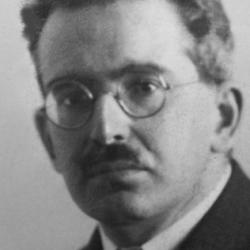In The Myth of Liberalism, John Safranek observes that recent Supreme Court decisions identify freedom with autonomy: “both restrain the government from interfering with an individual’s personal and self-defining decisions” (109). As the majority said in Casey, the right to self-definition is “at the heart of liberty,” such that marriage, procreation, family relationships “involving the most intimate and personal choices a person may make in a lifetime, choices central to personal dignity and autonomy, are central to the liberty protected by the Fourteenth Amendment” (109).
But how can we determine which choices are self-defining and which are not?
Safranek claims that the Court’s liberalism is circular: “Because the due process right to liberty cannot protect every act of liberty, the Court has attempted to limit the right to acts or decisions that are fundamental to self-definition. However, the Court must adduce some criteria to distinguish those acts or decisions fundamental to self-definition form those that are not, because people dispute the acts they consider fundamental to their personhood. Some might choose eating ice cream, others watching football, and still others sexual exhibitionism or abortion. But the criteria enlisted by the Court – privacy, autonomy, and dignity – reduce to self-definition. Therefore the Court inadvertently attempts to distinguish among acts fundamental to self-definition by appealing to the criteria of self-definition. In other words, in response to the query of why the due process right to liberty protects the self-defining act of abortion but not other acts central to some person’s self-definition, the Court responds that abortion is central to self-definition.” Safranek makes the obvious point: the notion that “the Constitution protects some self-defining decisions because they are self-defining but not other self-defining decisions, fails to establish a criterion to distinguish among the decisions crucial to self-definition” (112).
A principled notion of autonomy would provide some criteria to distinguish abortion from, say, “assisted suicide, prostitution, polygamy, drug use, or discharging cannons in one’s backyard.” Each of these might well be important to self-definition, and “the Court has never offered criteria that coherently circumscribe the general right to privacy, autonomy, etc.” This failure, he claims, “vitiates the right to abortion and other rights’ claims grounded on the equally voluntarist concepts of liberty, autonomy, equality, and dignity” (113).















